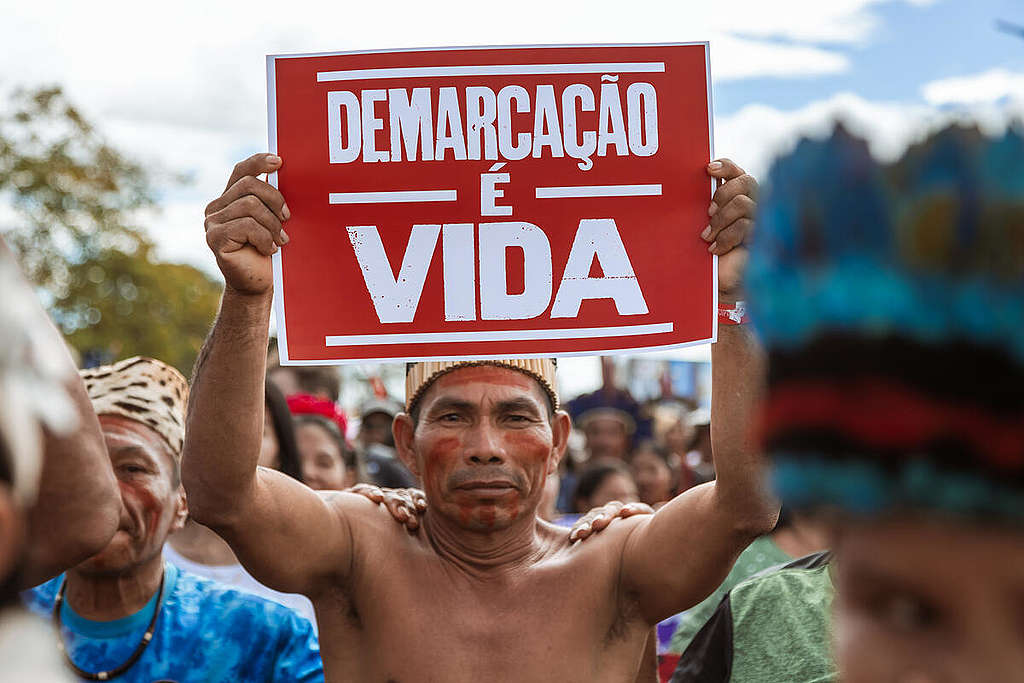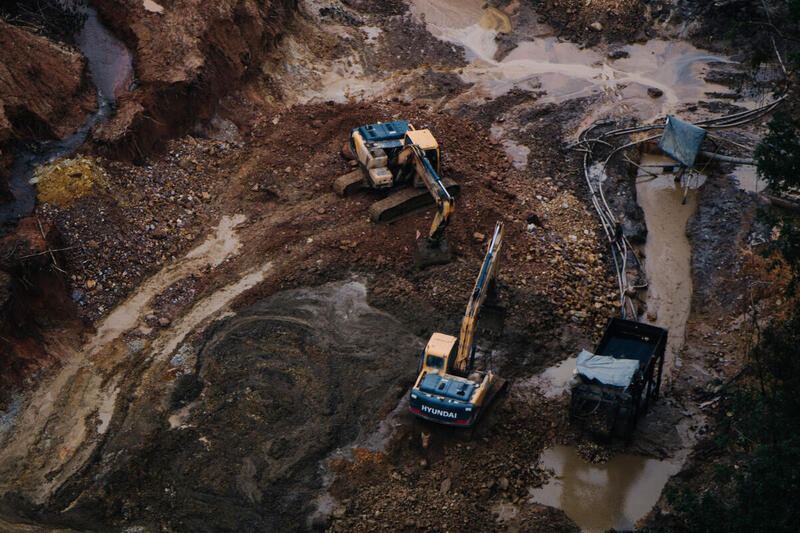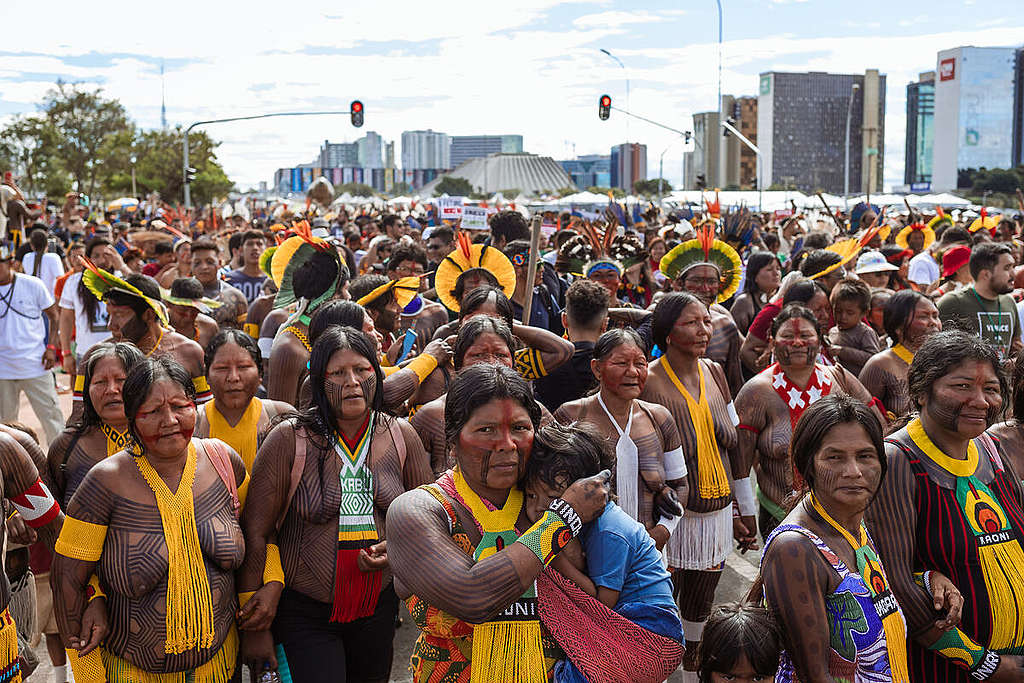Every year, thousands of Indigenous Peoples travel from all over Brazil to meet in Brasília, the capital of the country, to demand the government protect their rights. The Free Land Camp (Acampamento Terra Livre, in Portuguese) is in its 19th edition this year, happening from April 24th to 28th, with a clear ask: to have Indigenous Lands officially recognised by the government.
The demarcation of Indigenous Territories is one of the most important steps to ensure the rights of Indigenous Peoples are protected in Brazil. By establishing geographical boundaries to the land, the process makes it harder for invaders to infiltrate the area, allowing Indigenous Peoples to maintain their livelihoods, languages and beliefs alive and protected.

"The demarcation of Indigenous Lands is our ancestral right, provided to us in the Brazilian Federal Constitution. Those who invade an Indigenous Land destroy the forests and attack Indigenous People, who have been fighting for the protection of their families, cultures and lands for more than 500 years", said Dinamam Tuxá, executive coordinator of the Articulação dos Povos Indígenas do Brasil (APIB).
Indigenous Land demarcation is a Constitutional right in Brazil, obtained after years of struggle and resistance. However, there's still much that the Brazilian government needs to do to meet its obligation. There are currently 429 Indigenous Territories officially recognised in the country, but that accounts for only 30,8% of the total area claimed by Indigenous Peoples.
According to the Brazilian organization CIMI (Conselho Indigenista Missionário), in 2021, out of the 1,393 Indigenous Lands in Brazil, 871 (62%) had their demarcation pending. And most of those – 598 areas – hadn't had any action from the Brazilian government to even start the process. But land demarcation is not enough. There are currently several Indigenous Territories suffering from invasions by loggers and miners. The government needs to recognise the territories, but also ensure its protection.

Illegal mining has exploded in Indigenous Lands in Brazil – even those who are already demarcated, like the Yanomami. The Kayapó and the Munduruku territories are also being devastated by the activity that destroys rivers, contaminates people with mercury and brings violence and death to the Indigenous Lands.
According to a recent investigation by Greenpeace Brazil and Greenpeace East Asia, one of the key elements that enabled the recent increase of illegal gold mining in Indigenous Lands is the introduction of excavators to the activity. The heavy machinery can do, in a matter of hours, the work that 3 men would take weeks to complete.
The destruction of the forest and Indigenous Territories is not only a threat to Indigenous People living in the region, but to everyone. The protection of Indigenous Lands is vital in the fight against the climate and biodiversity crises. Despite accounting for only 5% of the global population, Indigenous Peoples around the world protect 80% of the world's biodiversity.

"The land demarcation is important not only for the Indigenous Peoples who live in those areas, but for the entire world as well. We know the importance of the Indigenous Territories for the protection of the forest, for the protection of life, for the balance of the planet's climate, and for the protection of the human beings who live on Earth", said Marciely Tupari, from the Coordination of Indigenous Organizations of the Brazilian Amazon (COIAB).
The fight for Indigenous rights in Brazil is long and needs action from multiple sides. You can support and learn more about their fight at the Association of Indigenous Peoples of Brazil website.






